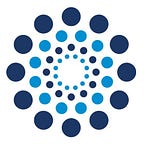Hacking Healthcare: Connectivity, Personalized Medicine, and the Future of Preventative Care
A conversation with Dan Dykes, VP and CTO of Beam Technologies
Despite all of the noise in the healthtech world, we’re at a crossroads. Software is eating the world, as Marc Andreessen noted years ago, but healthcare is still lagging behind: expensive legacy systems are costly to maintain, the regulatory environment is difficult to navigate, and, as we all know, people don’t always do what’s best for them.
At BaseHealth, we believe that the developers and engineers behind today’s most promising technology will forge the road ahead, invent new solutions to legacy problems, improve the overall healthcare experience, and, ultimately, create a healthier future.
That’s why we’ve started this series — to recognize and celebrate the people whose behind-the-scenes innovations are driving healthcare toward a brighter future.
Our fourth interview is with Dan Dykes, CTO of Beam Technologies, a startup building a dental insurance company backed by data from their smart toothbrush, the Beam Brush. Dan is an electrical engineer passionate about building all kinds of things ranging from electronics and injection molds to teams and companies. He spends his free time turning wood into sawdust and, occasionally, furniture. You can follow him on Twitter at @Dan_Dykes.
What are you working on right now and how will it impact healthcare and/or the developer world? What are you most proud of in your work?
At Beam we’re working to change the landscape of dentistry. Our goal is to help users access dental services more affordably and to build a better national culture for oral health. We’re building an ecosystem intent on making dentistry intelligent, personal, and efficient for everyone. Beam is leveraging the latest in hardware and software to catapult the latent dental industry into the digital-health era and expand dental coverage to the 130 million Americans that are uninsured. I’m proud to be building a passionate team that believes technology is the most powerful medium by which to positively influence heath and wellness on massive scale.
How did you get your start in the industry? When did you know you wanted to be an engineer?
When I was growing up, I would take apart and (usually) put back together everything I could get my hands on. My burning curiosity for how things work and how things are made has gotten me into (and sometimes out of) trouble more times than I can count. I always wanted to grow up to be someone who “made things.” Eventually I learned that these people are called engineers, and I have been one ever since.
I became involved in dentistry during college. My co-founders and I completed a few projects for a company that manufactured goods for the dental industry. The more we learned about the industry, the more we realized it was ripe for change.
What is the most promising sign in healthcare today? What gets you out of the bed in the morning?
I’m captivated by the marriage of structured, accessible patient data with artificial intelligence and machine learning. We are at the beginning of a new era: patients are contributing new data about their behavior, genetics, and more. We can begin placing this data alongside electronic health records to get a richer more detailed look at a patient’s overall health. Add in some artificial intelligence/machine learning, and I believe we are entering a renaissance for the practice of medicine, patient engagement, and clinical outcome.
There is a lot of talk in the industry about precision / personalized medicine. Where do you think this trend is headed and what do you think its biggest impact will be?
As connectivity grows increasingly ubiquitous and affordable, more and more patients will contribute increasing amounts of medical data on their own. We’re going to see a shift from periodic to continuous monitoring of patient health. We’ve already started to monitor behavioral data regarding diet, daily activity, sleep, and oral care, among other things. In the near future, advances in sensor technologies will contribute new streams of biological data, including cholesterol levels and glucose ratings.
By collecting more data points, we can design better machine-learning systems, which will empower care providers to surface, diagnose, treat, and prevent their patients’ health issues.
The net result will be a shift toward specialized preventative care for an increasing number of ailments, reducing cost and increasing positive outcomes.
What advice do you have for young technologists and developers getting into the healthcare world?
Don’t be intimidated by the regulatory landscape. Work to prove your ideas. Healthcare needs new ideas, and good ideas will be able to find people who can help you navigate FDA and HIPAA regulations.
Want to be featured next? Leave a comment about the work you’re doing in the comments below or gives us a shoutout @BaseHealth. We can’t wait to hear from you!
